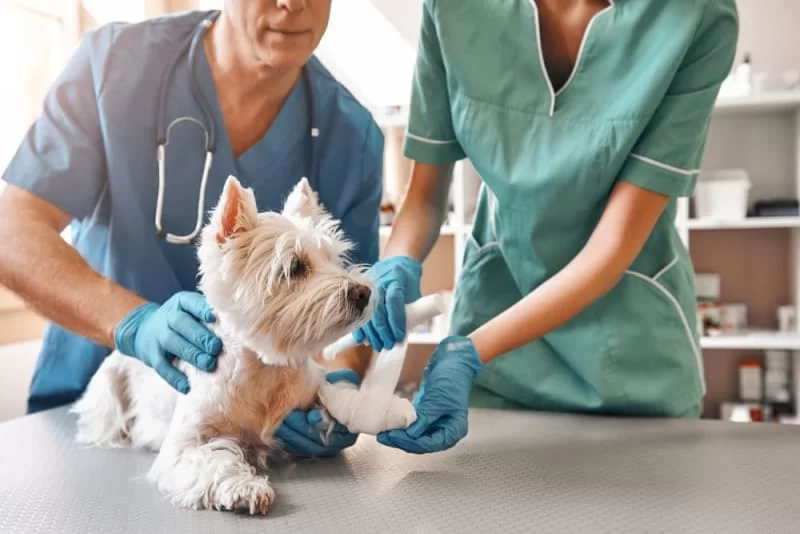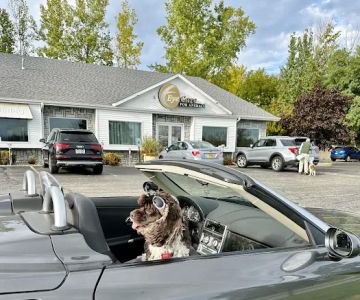- Understanding Dog Surgery Care
- Essential Post-Surgery Care Tips for Your Dog
- Common Challenges in Dog Surgery Recovery and Solutions
- Nutrition and Its Role in Recovery
- When to Call the Vet: Signs of Complications
Understanding Dog Surgery Care
After your dog undergoes surgery, their recovery process is crucial for their health and well-being. Understanding the basic principles of dog surgery care can help you provide the right environment for their healing. Dogs, like humans, need time to recover, and the process can vary depending on the type of surgery they have had. Common surgeries like spaying, neutering, or orthopedic surgeries require different care approaches, but the goal remains the same: ensuring your dog heals comfortably and without complications.
It's important to follow your vet's advice precisely, as each dog may have specific needs based on their age, breed, and overall health. Always keep a close eye on their behavior and recovery progress, as changes may indicate potential problems.
Essential Post-Surgery Care Tips for Your Dog
Proper post-surgery care is essential for your dog's recovery. Here are some key steps to ensure your dog heals well:
- Limit Physical Activity: Restrict your dog’s movements to avoid stress on the surgical site. Keep them in a small area, such as a crate or a room with minimal space, to prevent jumping or running.
- Manage Pain and Medications: Follow your veterinarian’s instructions regarding pain relief and any prescribed medications. Never administer human medications, as they can be harmful to dogs.
- Monitor the Surgical Site: Check for signs of infection, such as redness, swelling, or discharge. If you notice any of these symptoms, contact your vet immediately.
- Use an E-Collar: An Elizabethan collar (e-collar) can prevent your dog from licking or biting at their surgical site, which could lead to infections.
Common Challenges in Dog Surgery Recovery and Solutions
During your dog’s recovery, you may face some challenges. These can range from behavioral issues to physical complications. Understanding these challenges can help you prepare and respond appropriately.
- Restlessness and Anxiety: Dogs may become anxious or restless after surgery, especially if they are used to being active. Provide a calm, quiet space for them to relax, and consider using calming aids like pheromone diffusers or soothing music.
- Lack of Appetite: It’s common for dogs to lose their appetite after surgery. However, if this persists for more than a couple of days, or if your dog refuses water, consult your vet. You can try offering bland food like boiled chicken and rice.
- Behavioral Changes: Some dogs may show behavioral changes such as aggression, confusion, or excessive barking due to pain or discomfort. Be patient, as these behaviors are often temporary, but if they continue, seek professional help.
Nutrition and Its Role in Recovery
Proper nutrition plays a significant role in your dog’s recovery process. A balanced diet helps promote healing, reduce inflammation, and support the immune system. After surgery, your dog may need more calories and nutrients to help their body recover, so it’s essential to provide high-quality food that meets their dietary needs.
Consult your veterinarian about whether any dietary changes are necessary. For instance, they may recommend a special food formulated for recovery or a diet rich in protein to help repair tissues. Always ensure your dog has access to fresh water at all times, as staying hydrated is crucial for healing.
When to Call the Vet: Signs of Complications
While most dogs recover well from surgery, some may experience complications. It’s important to know when to contact your vet to avoid serious health risks. Common signs that require a vet’s attention include:
- Persistent bleeding or drainage from the surgical site
- Increased swelling or redness around the incision
- Severe vomiting or diarrhea that doesn’t subside
- Signs of infection, such as fever or lethargy
- Difficulty breathing or an unusual cough
If your dog exhibits any of these symptoms, don’t wait—contact your veterinarian immediately for guidance. Early intervention can prevent further complications and ensure a quicker, smoother recovery.
At Hidden Brook Veterinary, we understand how important your dog’s recovery is, and we offer a range of products and services that can support your pet’s healing journey. Whether you need specialized aftercare items or advice from experienced professionals, we are here to help!












